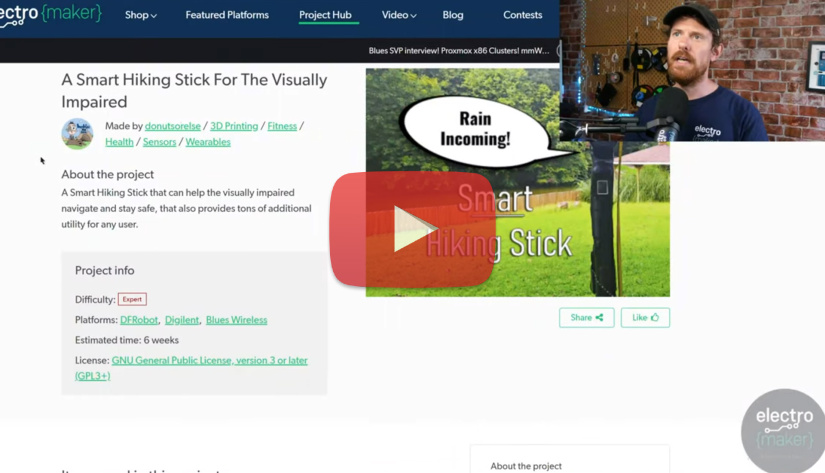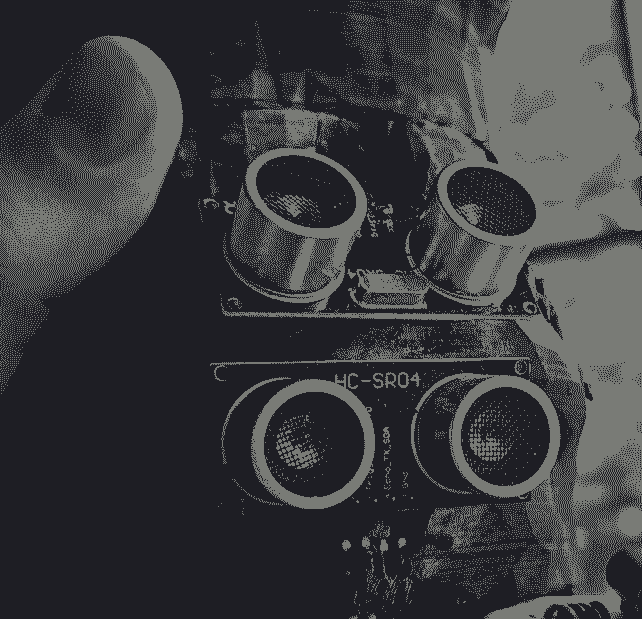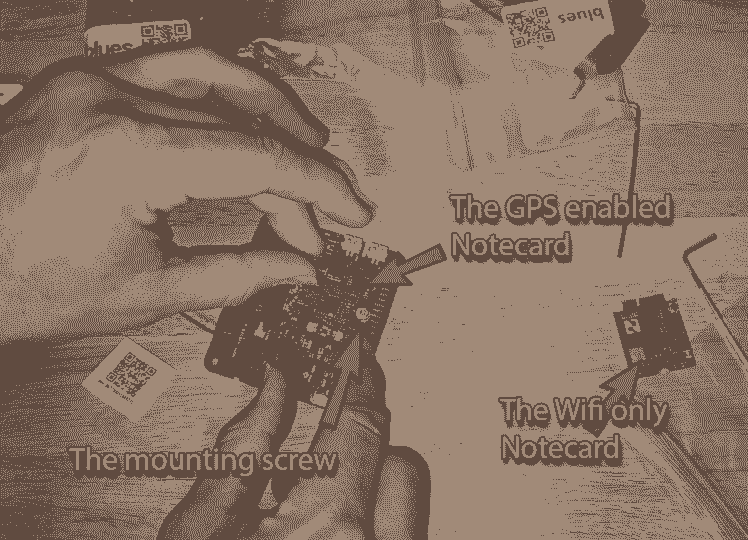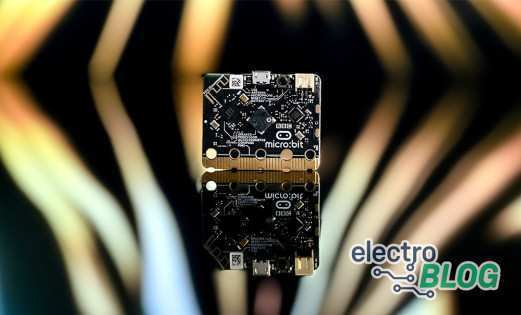Smart Cabinets and Hiking Stick: Accessible Tech Innovations by DonutsOrElse
Electromaker community member, donutsorelse, has become well-known for his innovative, accessibility-focused projects. Over the years, he's developed a wide range of creations, each addressing unique challenges with inventive, low-cost solutions.

Watch Ian talk about accessibility-focused projects from donutsorelse in this episode of The Electromaker Show
Among his most notable projects are the Smart Cabinets with Voice Activation and the Smart Hiking Stick for the Visually Impaired. Both projects are centered around improving accessibility through technology, demonstrating how DIY electronics can be used to make everyday life easier for people with disabilities.
Smart Cabinets with Voice Activation
The Smart Cabinets with Voice Activation project by donutsorelse offers an innovative solution to make household storage more accessible. These smart cabinets use microservos to open and close doors automatically, allowing for hands-free operation. This makes them especially useful for individuals with mobility or dexterity challenges, as they no longer need to struggle with physically opening cabinet doors.
The system relies on a combination of technical components to function. At the heart of the setup is the Uniker single-board computer, which acts as the control hub. It works in tandem with a Xiao ESP32 S3 board to manage the servos and facilitate smooth automation. Together, these components ensure the smart cabinets operate efficiently within a custom smart home environment.
What sets this project apart is its integration of voice recognition and MQTT technology. This allows users to control the cabinets using simple voice commands, such as saying “Butler, open the cabinet.” The Uniker board supports voice recognition libraries in Python, making it easy to implement this feature without relying on external cloud services.
Smart Hiking Stick for the Visually Impaired
The Smart Hiking Stick project is designed to empower visually impaired individuals by enhancing their independence while hiking. Developed by donutsorelse, this innovative device integrates advanced technology to provide essential guidance and safety features for hikers navigating outdoor environments.
At its core, the hiking stick is equipped with a range of sensors and components, including distance sensors that help detect obstacles and provide real-time feedback to the user. It also features GPS functionality via Blues Wireless, which ensures precise location tracking. The UNIHIKER single-board computer acts as the control center, managing all the smart functionalities of the device.
One of the standout features of the Smart Hiking Stick is its use of voice commands for ease of operation. Users can ask the stick for their current location, estimated distance from home, or even trigger an SOS alert in case of emergencies. Additionally, GPS geofencing capabilities allow the stick to send automatic safety alerts if the user strays from a predefined area, making it an ideal tool for both accessibility needs and long-distance hiking safety. The system's connectivity enables real-time updates, ensuring that the user and their contacts stay informed about their location and status.

Accessibility Focus and Innovation in Low-Cost Prototyping
donutsorelse's projects are a prime example of how accessible and affordable prototyping can lead to impactful innovations. By utilizing low-cost components such as the Xiao ESP32 S3 board and Uniker single-board computer, donutsorelse is able to create devices like the Smart Cabinets and Smart Hiking Stick that serve essential accessibility needs. The use of these inexpensive parts not only makes these projects more feasible for makers, but also increases their potential for wide adoption and further development.

Starting a project with accessibility in mind is crucial to creating solutions that can make a real difference in people's lives. donutsorelse's approach emphasizes the importance of DIY solutions that can be both affordable and effective, encouraging other makers to contribute to the growing field of accessibility technology. These prototypes, though still in development, offer a glimpse into how makers can address real-world problems with creative, low-cost solutions.
Did you enjoy this article?
Make sure you subscribe to The Electromaker Show for similar content and subscribe to our monthly newsletter!














































Leave your feedback...